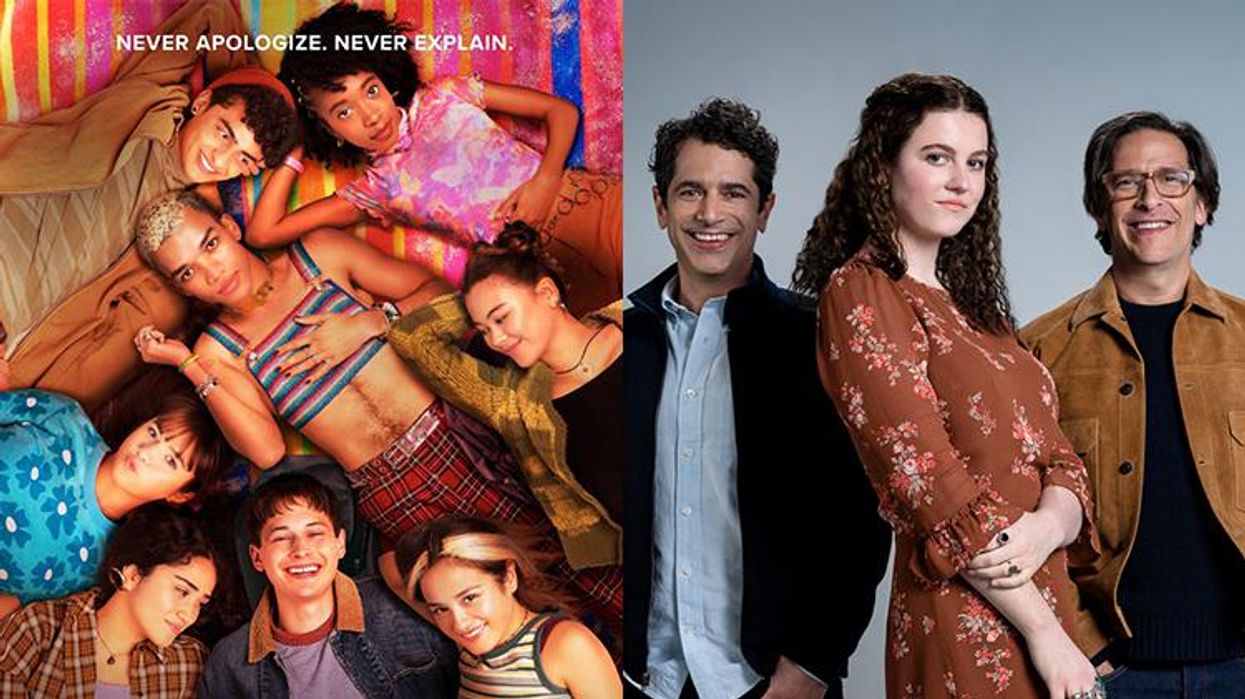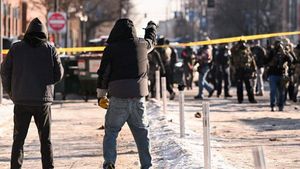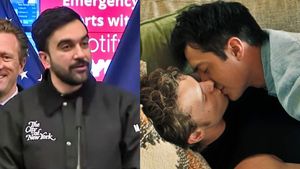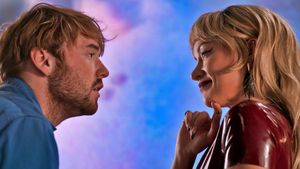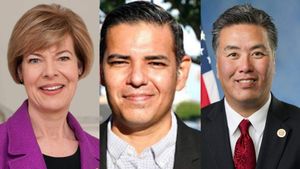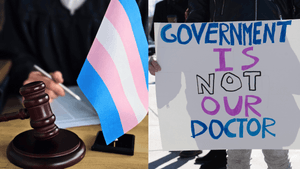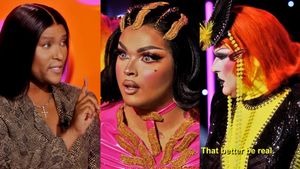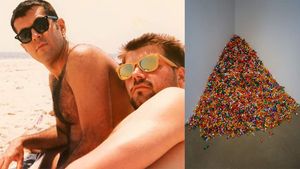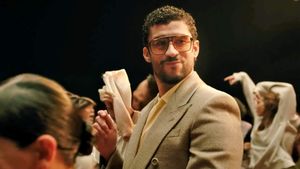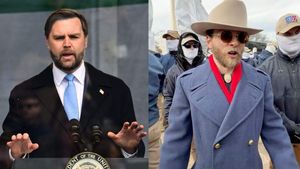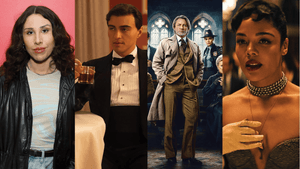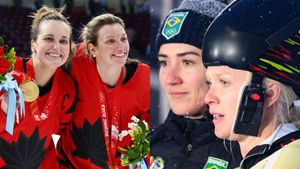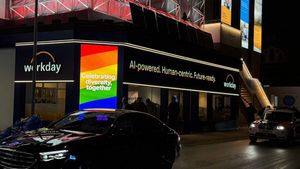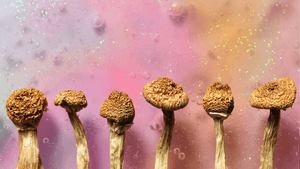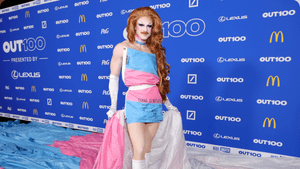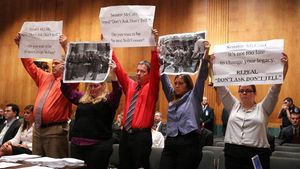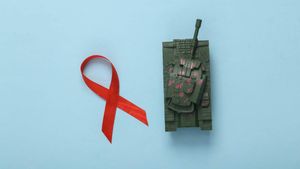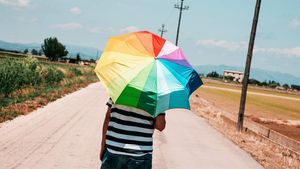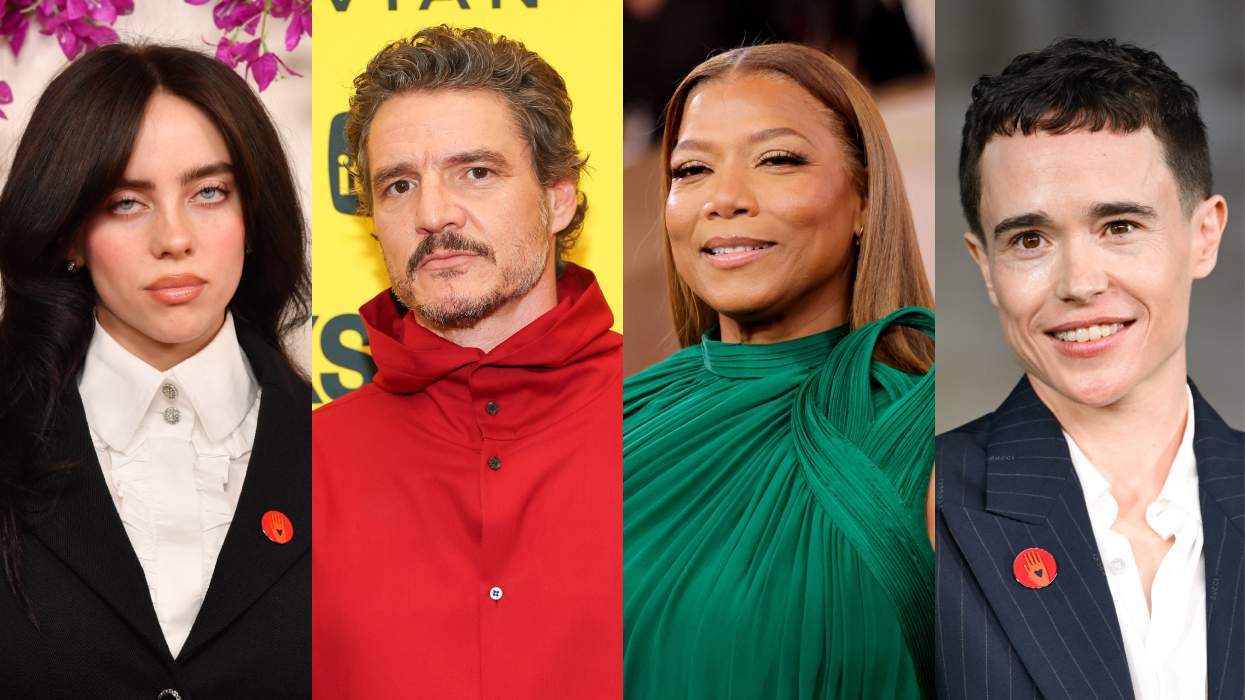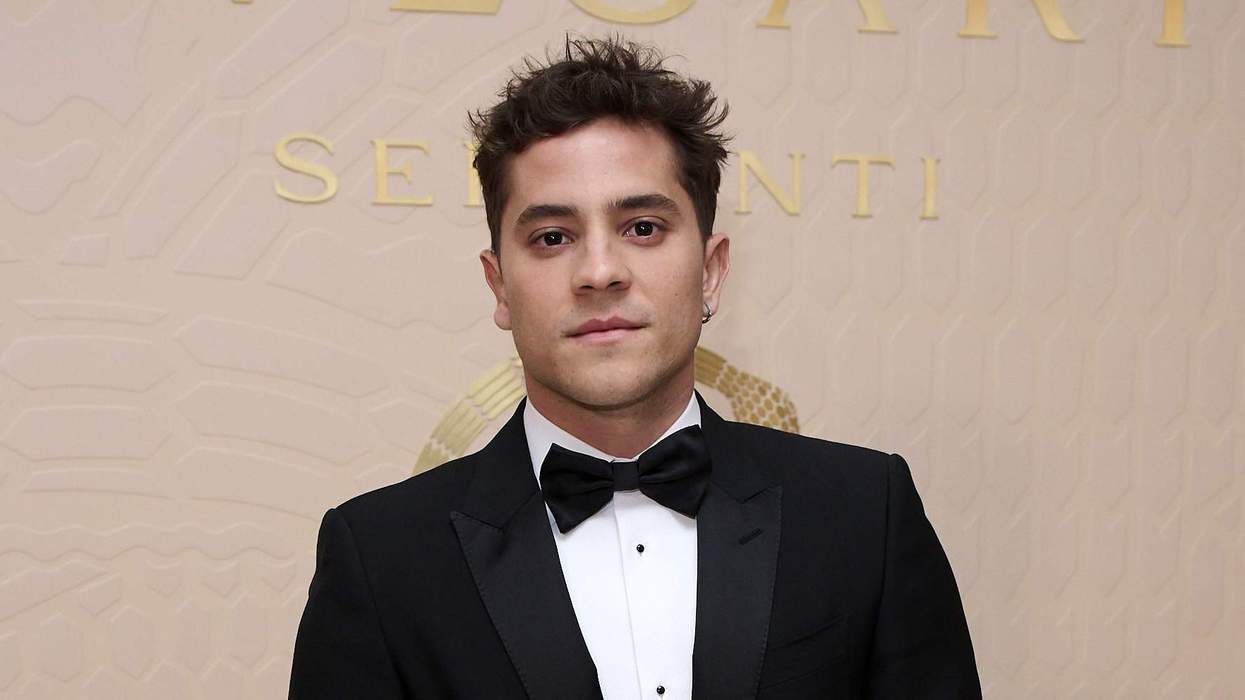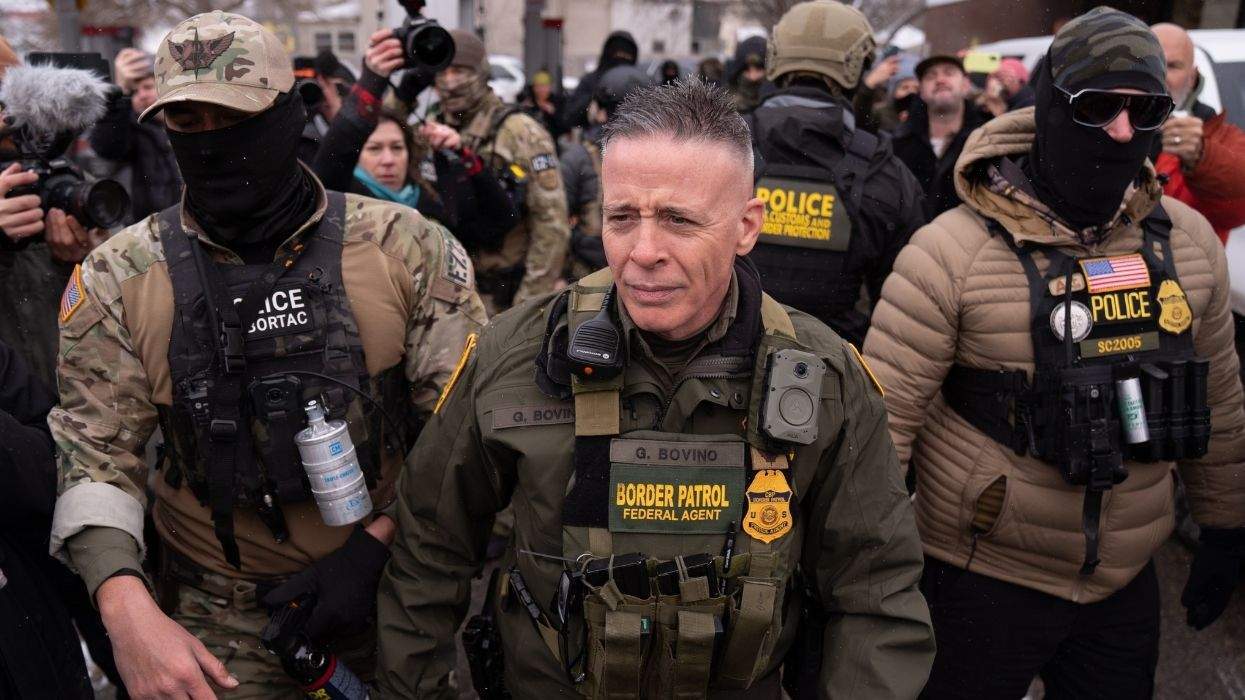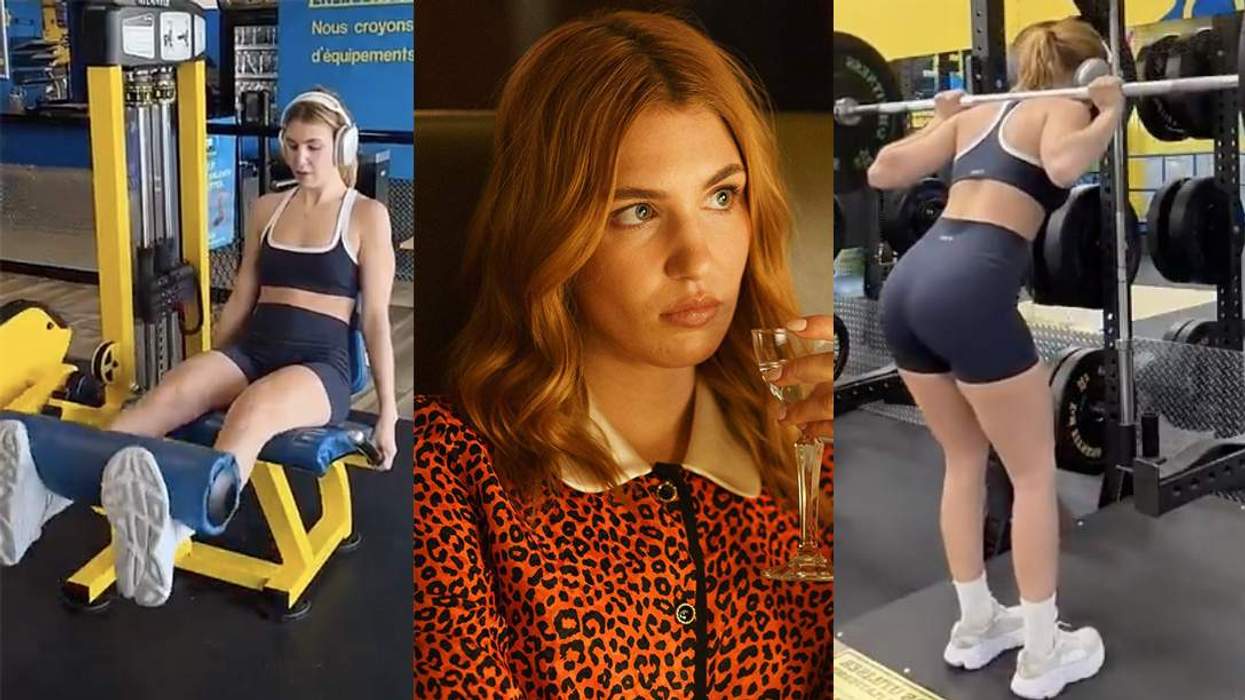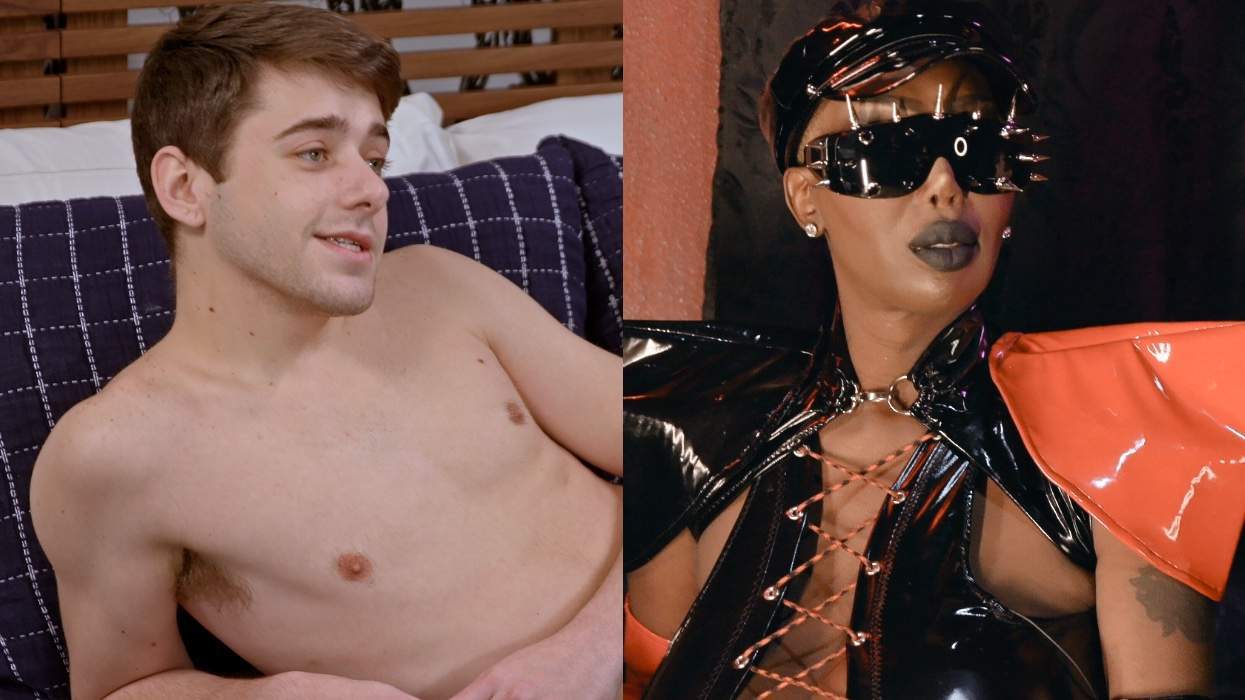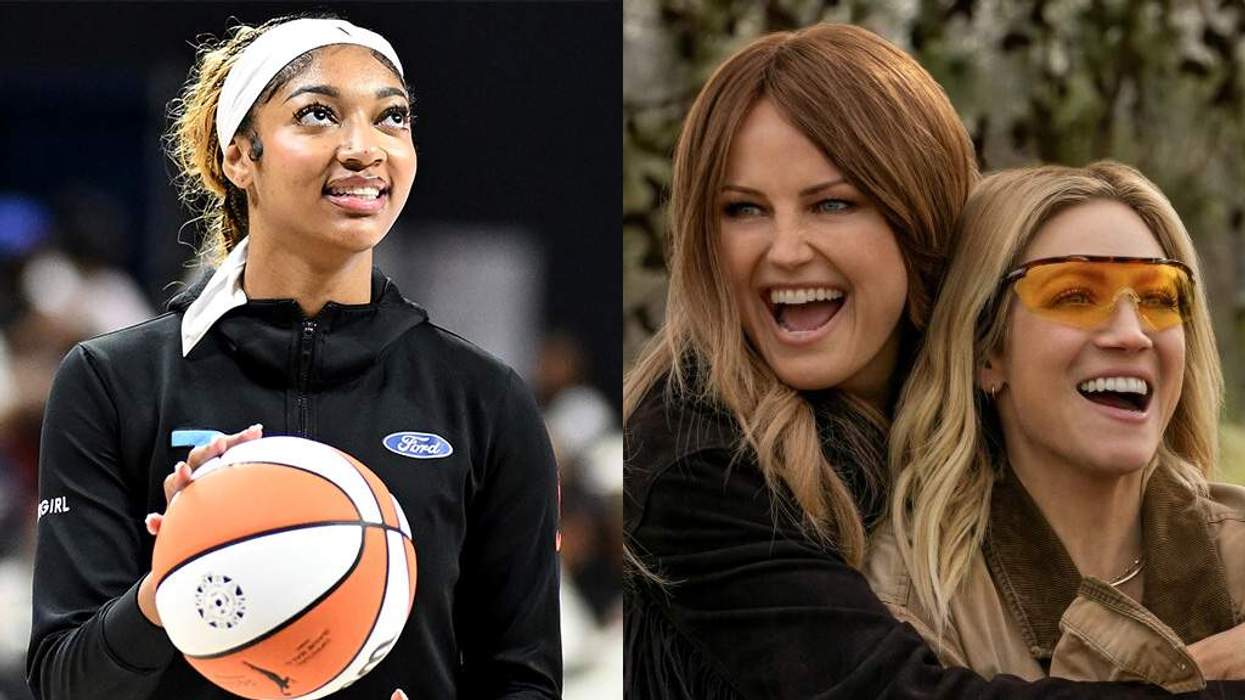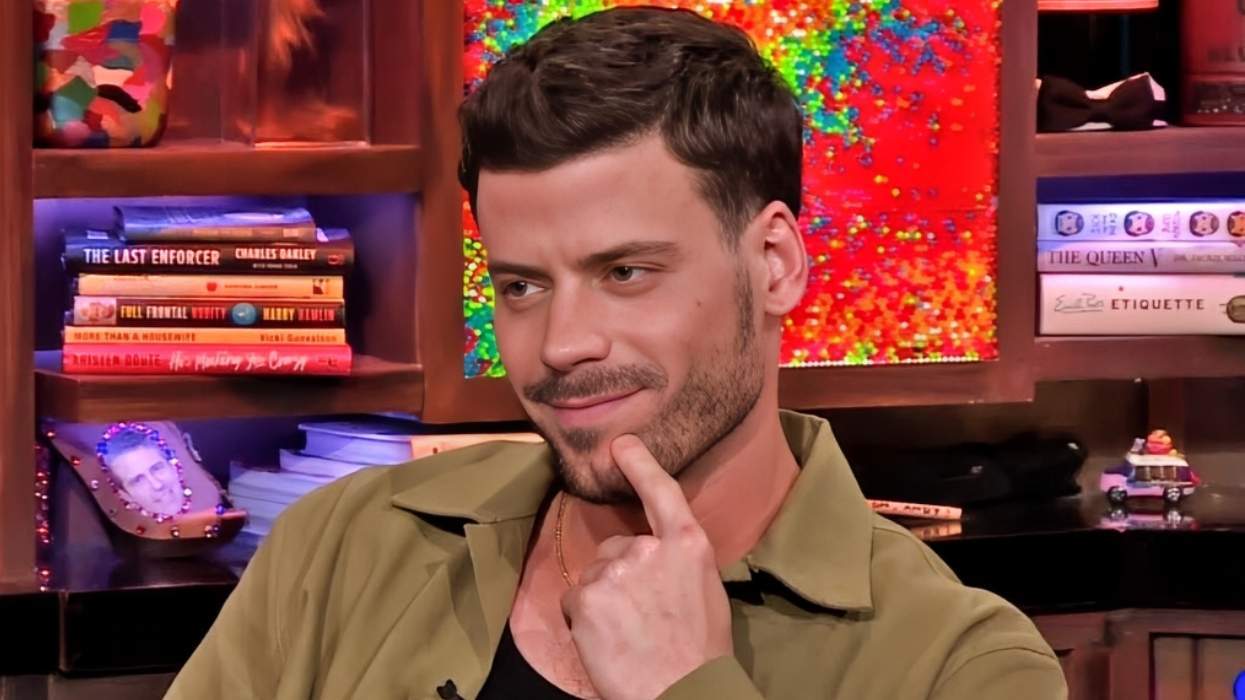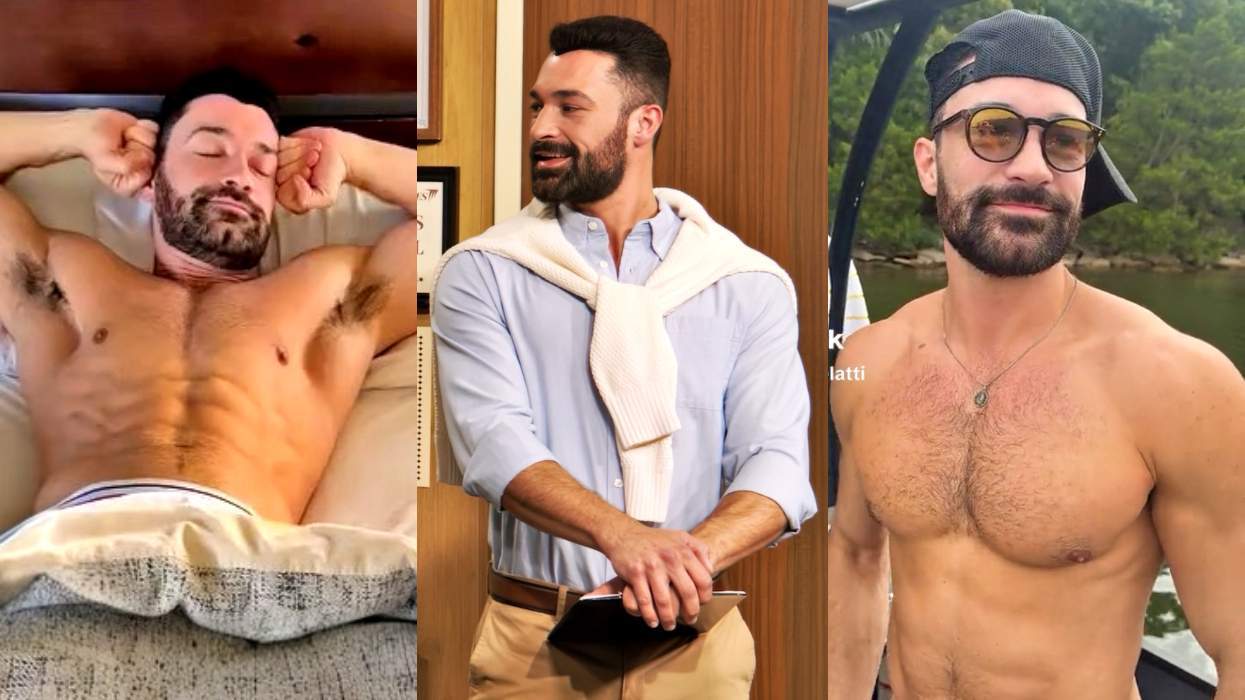HBO Max's newest YA series Genera+ion is filled to the brim with queer, young adult stories that focus on how silly, awkward, and ridiculous coming of age can be.
Produced by Lena Dunham, the show was created by 17-year-old writer Zelda Barnz and her two dads, industry professionals Daniel & Ben Barnz. Its perspective and whimsy is unlike anything else on television, shining a whole new light on the playfulness, fluidity, and issues of the often misunderstood Generation Z.
Just ahead of the premiere of Season 1, Part 2, PRIDE had a chat with the Barnz trio ("same house but different phones") about queer joy, LGBTQ+ representation then and now, and the inspirations behind the casually revolutionary series. But they do want to clarify they do not have the same dynamic as one character, Arianna, on the show, who believes having two gay fathers give her a pass to be openly (and hilariously) homophobic.
PRIDE: My first question, just as a fan of the show, did y'all's relationship at all inspire Arianna's character and her two dads? Because that dynamic is hilarious.
Daniel: It's a good question. I will say generally there is a spirit of irreverence in our household, which really did inspire that. Arianna's voice and her relationship with the dads, and I think we just try, as a family, not to be too precious about things. That was definitely working with Arianna and her dads. But in terms of some of the other specific things she talks about her dad, I will say we have taken great departures from reality, and nobody should think it's too fact-based.
It's hilarious. I wasn't expecting it when I first started the show, and now it's one of my favorite bits. Honestly, any of the characters could be the lead of the show, but I do love that it mostly focuses on Chester. I want to ask about that decision on him being the main character and how Justice Smith got involved.
Zelda: For Chester's inspiration, there was this older student at my school who was openly queer and very, very popular, and head of the GSA (Gay/Straight Alliance). And they were also the student body president of senior year. Everyone knows that is just a popularity contest, and they won. It was kind of amazing just to see this older, openly queer role model who would perform in drag in front of the school and come to school in high heels and always have their nails done and always look amazing and was so open about their sexuality and didn't hide themselves or their identity at all.
That was really inspirational because I do feel like in media, I'm seeing these queer characters who were hiding, or were struggling to figure out what their sexuality was, and if they were open about their sexuality, they were bullied. I felt like that wasn't the entire experience that I was seeing, and that certainly wasn't this person's experience. And I just thought it was kind of amazing, and I wanted to see a character like that, who could be openly themselves and loved for it on screen.
Daniel: And also, there are so many things about Chester's character that you're used to seeing in supporting characters, either the loud presentational funny person, or sometimes Chester's really a deep thinker but that deep thinker character is more quiet and sullen in the background. And so what we really wanted to do was say, "What if Chester is all of these things? What if he is really complex and nuanced and at the center of it. What will happen?" And it's interesting. As the show has started to get out there, people seem to really connect with Chester. They either see something of themselves in him, or they see qualities in him that they wish they had. And by the way, it's so true for me. I wish I had Chester's boldness and fearlessness at the same level.
To the second part of your question in terms of how did Justice get involved. Justice auditioned, and he actually originally auditioned for the counselor role. This is the role of Sam that ended up getting played by Nathan Stewart-Jarrett, and we originally were thinking of that role quite differently. When Justice auditioned for it, he wasn't quite right but we were so taken by his performance. We asked him if he would come in and read for Chester. I think he was a little intrigued and scared at the same time, and I think he also was just wondering whether he could successfully pull off a high school student still. But he did come in and read, and his audition was so extraordinary.
Justice's performance in this audition was so mesmerizing that I literally wept. And then we started this conversation with him, and I think Justice has never done a role like this before. It's interesting because he seems so perfect for it. But really when you look back and see what he's done before, it's like he never really has done a character that is all of these things in one. He's just such a gifted actor that we all just decided, what at the time seemed like a chance, like "Let's just risk it because he's such a good actor." And of course, in retrospect, it's like, "Duh obvious. He's perfect. Nobody else could play the role."
Justice is so awesome. There's this one moment that the guidance counselor, Sam says to Chester, "You are who I wish I could have been in high school." But that is this idea of queerness that many of us, myself included, weren't able to express in high school. Chester also plays into that like GBF kind of character of the early 2010s, that is always a side character and desexualized. In this show, he gets to be at the forefront, he gets to have his love interest, he gets to be sad. I think that's really cool. It flips that idea that we have of what that character looks like.
Daniel: In the second block, these next eight episodes that are coming out, we dive even a little bit deeper into his physical sexuality.
One thing I really love about this show is the queer joy. So many LGBTQ+ shows deal with the sad and the dark troubled coming outs and getting kicked out of the house or worse and often can come off this trauma porn. This show shows the hardships young queer people might go through but there's a lot of joy and laughter and awkwardness and ridiculousness mixed in with it all. That can be very healing and empowering. Was that intentional?Zelda: Yeah, absolutely. I mean that was definitely my initial inspiration for the show. It was definitely hard for me when I was first coming out and realizing that I was queer, to see all of these, just over and over again, all of these really tortured queer characters. And I know through my own life experience, that's not always how it is. And I know from seeing my parents who are queer and happy that that's not always how it is. I just think it's very hard to be a queer teenager and see all these characters who are being bullied, or their storylines are only coming out storylines when there's so much more to being queer than just coming out. And all this worry of if people will accept you, that is obviously of course real enough and an important story to tell, but it's also not the full story all the time. We really wanted to lean into queer joy and queer love and a celebration of queer youth and let queer kids know that they're loved and that they deserve happiness. That was a really big inspiration for the show.
Daniel: That was one of the really beautiful things about having an almost all queer writer's room, there was this shorthand that existed amongst all of us, and immediately it was this unanimous consent that we wanted to steer clear of some of these darker tropes that tend to go hand in hand a lot of queer characters. We just didn't want to have coming out stories for everybody. We wanted to figure out how to embed messages in more subtle ways. When people watch the pilot, one of the moments that people frequently bring up is when Chester is walking along the yard and his water polo teammates, who were basically out of focus in the background, call out to him. He's like, "Yeah, I'll catch up with you later." And because we're so used to scenes of queer kids who get bullied by the athletes, I think it was very surprising for people if to have this kind sort of moment within the show. And when we realized that, it was actually one of the inspirations for a later scene in episode three, when Chester's texting in the locker room and you have all these naked guys around and they're a little kind of weird and bro-y with him, but fundamentally are not phased by his queerness. That was really exciting to be able to put that scene in the show because those scenes are always about some tortured queer longing, or some queer kid getting bullied and we just wanted to have a queer kid in a locker room who's dealing with his life and just living his life.
The show is called Generation. I'm a millennial but I feel like I'm looking at a wildly different queer experience. David and Ben, y'all have been around creating movies for a while. What kind of LGBTQ content were you watching in your younger years, and how does that compare to this series.
Ben: It's funny, because you sort of touched on this already a little bit. I feel like the gay content that I was watching was always, unfortunately, queer joyless. In the eighties there was always AIDS, and if you had sex, you were going to die, and your family hated you and you were kicked out of the house. So it was very few and far between that you saw a character that was just living their lives. Part of the beauty of this show is that teenagers are for the most part are, I mean, it's a generalization, but joyful people.
That's the joy and the fun that you're seeing is that, yes, it's a very queer show and all of our characters are dealing with sexuality, but they also are just teenagers who are really just a joyful lot of people living their lives.
I can't really think of anything specific. Daniel, can you think of anything that we would watch? I mean, there were a lot of John Hughes movies, obviously. The closest queer character was Duckie in Pretty In Pink, but I'm pretty sure that Duckie ends up with a girl at the end.
Zelda: Duckie ends up date raping a girl, doesn't he?
Daniel: No, no, no, no. That's the other one. No, that's Sixteen Candles.
Zelda: Oh my God. Yeah.
Daniel: That's true though. Jesse is so clearly gay, but so closeted.
And there were no trans people. No non-binary people. I mean the whole spectrum of gender and sexuality was just ignored. If you were lucky enough to find just any queer character, that character was always sad gay or lesbian and had trouble.
When I was coming out, I watched a lot of Queer As Folk on Netflix. That was my first entryway into anything gay. I watched it eight or nine years ago, but it came on in 2000, and there's such a huge difference between these two LGBTQ shows. I mean it's wild thinking about how far we've come, only in two decades, let alone more.
Daniel: It's funny because Ben and I talk about this all the time. There's such a fast generational turnover for queers. I feel like queer experiences five years apart can feel so different. Obviously, there are more than five years between Zelda and us, but it was really interesting to see just how big the generational divide was. And of course, that was also part of the genesis and inspiration for the show, was to really look at what being queer looks like for Zelda and so many people of our generation, and how profoundly different it is from what Ben and I experienced.
I do have to say, I felt very attacked by the teacher that was obnoxiously playing "Born This Way" to get the students to come into the GSA meetings and how all the students cringed at her cringiness. As someone who was coming out when that song was popular, that jab hurt. It was a moment that me and my two friends that were watching it and we all three screamed because we were like, "Oh wow, we're old."
Ben: That's funny.
Daniel: The spirit of Mrs. Culpepper is played by the extraordinary Mary Birdsong. By the way, if you have not seen her impressions of Judy Garland, you have to YouTube it immediately. But the inspiration for her came up in our writer's room, and she was a character that we wanted to run with again, because the show likes to play with tropes. There is an extraordinarily inspiring character in Sam, an older guidance counselor, but we also wanted to poke fun a little bit. The idea of having Mrs. Culpepper be a little bit outdated and in her good way, trying to push the envelope but just pushes too hard, and it's very out of touch with the kids.
I love that song. And also it's of a different generation now, that song is already a different generation than gen Z, which is kind of amazing.
